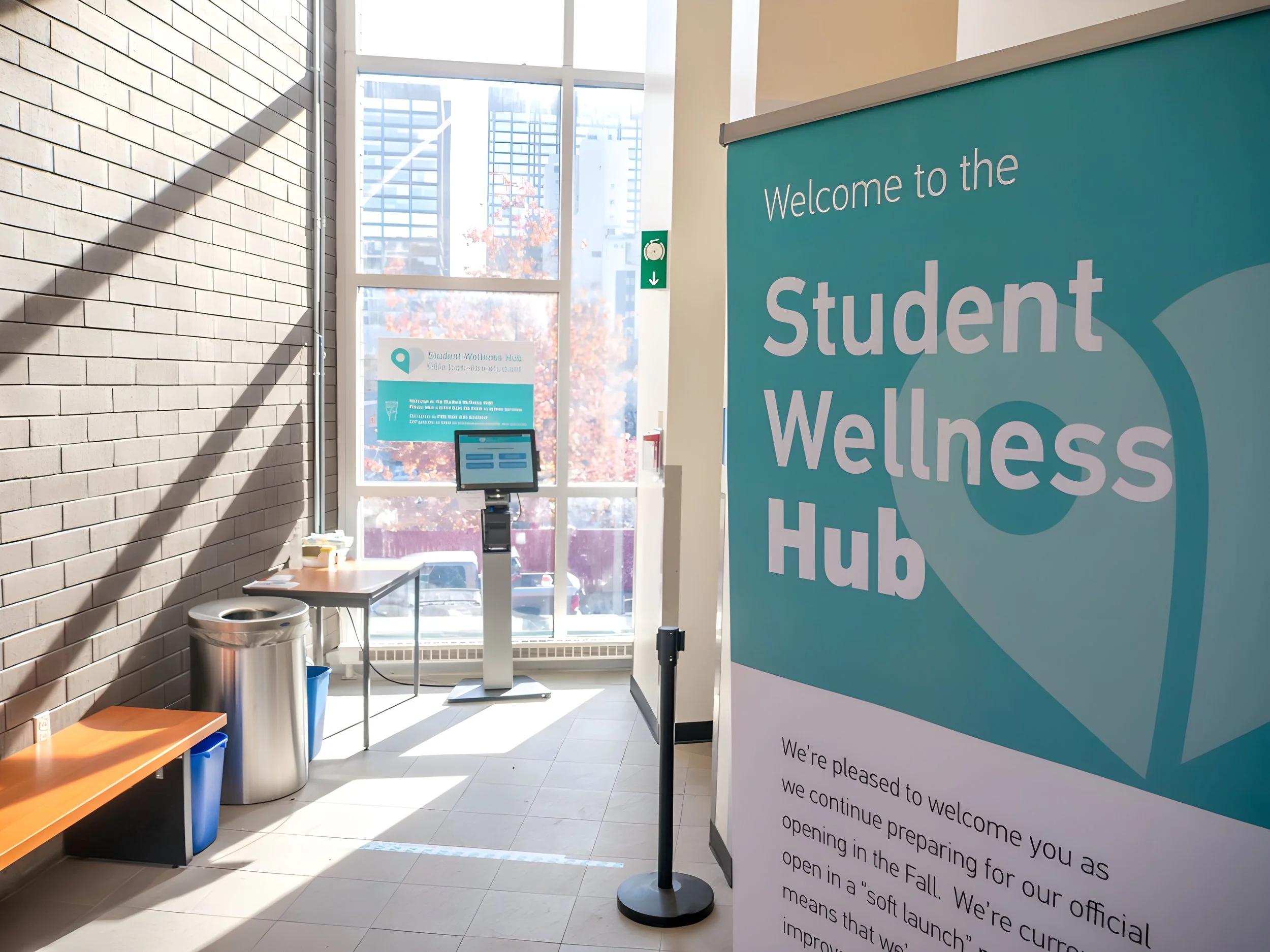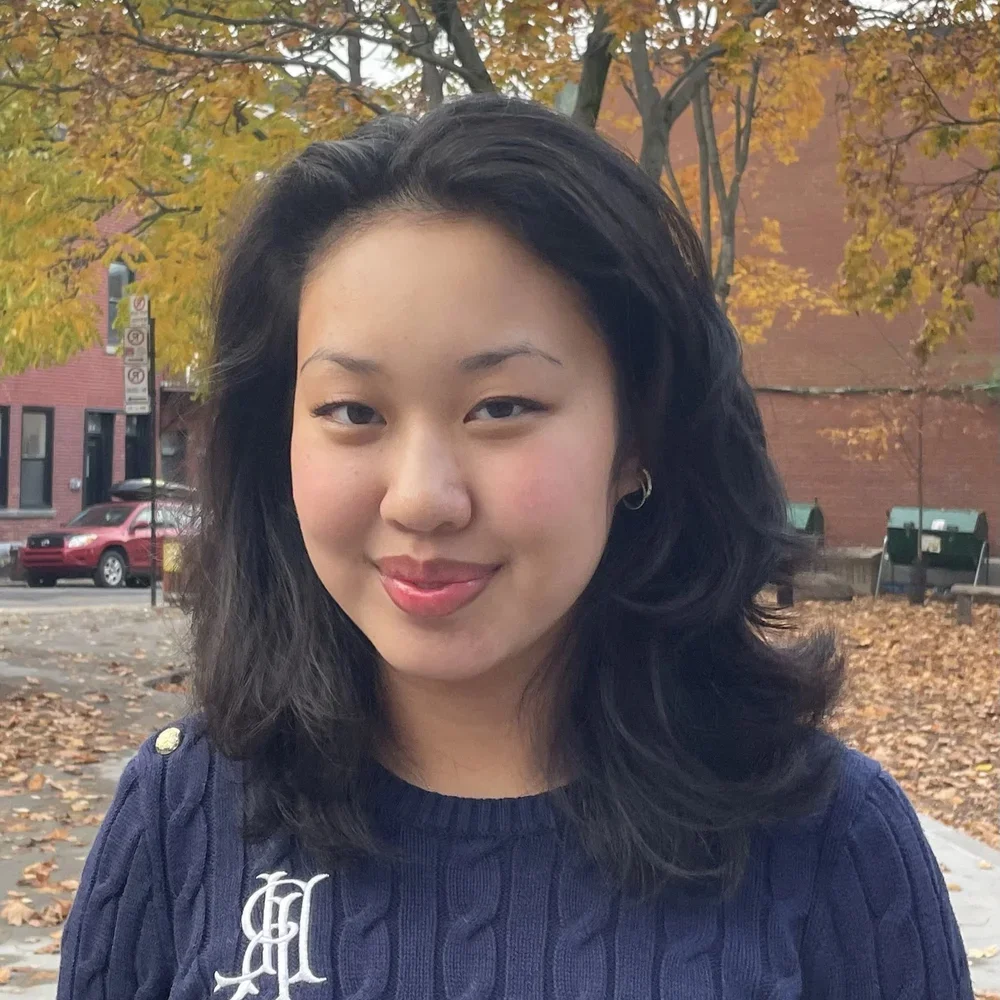An Interview with McGill’s Student Wellness Hub on Care Access and Capacity on Campus
Image source: McGill University Wellness Hub. (© 2025 McGill University.)
By Bridget Li
While Canada’s overall supply of doctors has grown in recent years, this increase has not been reflected among family doctors–the primary care practitioners that patients usually see for everyday wellness needs, check-ups and referrals (CMA). The McGill Student Wellness Hub–run by McGill Student Services–is a small-scale reflection of this larger problem within the Canadian healthcare system. The Wellness Hub’s “variety of clinicians” aims to provide “a range of health services to support students’ physical and mental health” (Wellness Hub). These clinicians include nurses, general practitioners, dietitians and counsellors, among others. While the Hub’s undertakings are grounded in good incentives, it’s been struggling with capacity.
Ask anyone on campus, and you’ll likely hear the same thing: it’s challenging to get an appointment. Most people try to call at 8:30 AM–when the clinic opens– hoping to secure a same-day appointment. Many encounter long waits on the phone or an automated voicemail saying all spots are full. They must therefore repeat the attempt the next day. Google reviews and Reddit posts corroborate this word of mouth. The Hub’s own website pre-empts this, explaining that the hours worked at university clinics don’t count toward physicians’ ministry-mandated requirements. Physicians with less than 15 years of experience must complete twelve hours of AMPs (activités médicales particulièrs). The Quebec ministry of health does not count working at a student health clinic as AMP hours (Québec). As a result, Hub hours are often the first to be reduced when physicians adjust their practice schedules. In other words, Hub doctors are effectively signing up for extra work on top of their regular hours. As the Wellness Hub serves as the main point of care for many McGill students, it’s not surprising that this deadlock has created an air of frustration and anxiety on campus.
While accessibility remains an issue, the general quality of care at the Hub remains high. An international student covered by McGill's International Health Insurance (IHI) described a positive experience: "When I arrived at McGill, I was a bit lost on where to access care. Although it was a bit tough to get an appointment the first few times I called at the Hub, I was satisfied with the care I received the one time I went there. I found the doctor to be patient and thorough and they followed up with me after my appointment. I didn't feel rushed, even though I was aware that they are working "extra hours" by choosing to work at the Hub."
To better understand how to access care at the Wellness Hub and what the Hub is doing to address this challenge for students, I had the opportunity to conduct an email interview with Dr. Vomero, the Hub's Director, and the Hub's Communications and External Relations Department. My goal was to better understand the challenges at play, see what’s being done internally, and learn how the Hub is addressing these concerns from our student body.
How is the clinic funded?
The Hub draws from multiple sources:
McGill University contributes funding, including salary support and infrastructure investment.
Student service fees help sustain core programming.
External grants and donations fund targeted initiatives like equity-focused programming, health promotion, and staff training
This mix of funding, the Hub says, helps it stay responsive to student needs even during budget constraints.
Are there any initiatives in place to attract or retain practitioners, given the ministry hours issue?
An onboarding framework was designed to integrate general practitioners (GPs) into the clinic, supported by billing teams, on-site labs, nursing staff and front-line service workers. Nurses provide essential clinical support and continuity of care, freeing up GPs to focus on diagnosis and treatment.
The Hub has also introduced measures like compensating GPs for their time at conferences and strategic meetings, recognizing their contributions beyond clinic hours and encouraging deeper engagement. IT and infrastructure support are embedded on-site to provide GPs with real-time assistance.
A Nurse Practitioner is joining the hub in November–an important step to expand primary care capacity for students.
Are staff provided with ongoing professional development or training opportunities? Specifically, how does the clinic ensure staff are trained to meet the specific needs of a diverse university student population?
All Hub staff take part in ongoing training tailored to McGill’s diverse student population, delivered through:
Monthly “Hub Huddles” focused on student services and mental health.
Biweekly interprofessional conferences for collaborative learning.
Workshops on trauma-informed care, sexual health, and culturally responsive service delivery.
A major focus is on Equity, Diversity, and Inclusion (EDI). In 2024–25, the Hub held:
A seven-session series on working with Black students, emphasizing culturally safe care and trauma-informed practice.
A simulation-based follow-up for feedback and skill-building.
A workshop on Dialectical Behaviour Therapy (DBT) through an EDI lens, discussing identity, intersectionality, and inclusive therapeutic tools.
Training on gender-affirming care, including hormonal treatment and trauma-informed support for students navigating transition or de-transition.
Operational improvements to ensure students are addressed by their preferred names, even when systems like provincial health records make this difficult.
The Hub also invests in new technologies, such as staff training on AI in mental health care, focusing on ethical implementation, privacy, and ways AI might improve access and personalization.
These professional development efforts are complemented by partnerships with provincial and national networks, ensuring that training is aligned with best practices and current research.
How does the clinic deal with dissatisfaction from the student body about appointment availability?
The Hub shared several initiatives:
Launching a Call for Tender (CFT) to implement an electronic health system with online appointment booking, with an anticipated launch in early 2026, which would allow students to book appointments in advance instead of same-day bookings.
Expanding GP hours and adding a Nurse Practitioner and Medical Technologist.
Assigning Case Managers to support students with complex needs and connect them to community care when necessary.
Access Advisors help students navigate the system and find the right care pathways.
How does the clinic gather feedback from students? Are students involved in any advisory or consultative roles with the clinic’s decision-making process?
Feedback comes from several sources:
Post-appointment surveys and website forms.
Focus groups, Google reviews, and student testimonials.
Student involvement in advisory groups, including the Healthy Living Annex Student Co-Design Group, which shapes health promotion programming.
The Hub Peer Supporter team, a group of trained student staff who run outreach and education programs, facilitate harm reduction, and guide peers toward services.
According to the Hub, this feedback directly informs programming, service design, and even infrastructure updates like signage and navigation.
Final Thoughts:
The Hub’s answers show a clear awareness of the challenges that come with delivering student healthcare and a willingness to be accountable and solution-oriented. However, a major issue remains: a lack of transparency and limited accessibility of information.
It’s encouraging that the Hub is recruiting new practitioners, training staff in EDI and trauma-informed care, and moving toward telehealth. But none of this information is easy to find. Publishing these updates and goals on the Hub’s website would improve transparency, build trust and reassure students that their voices are being heard. Transparency creates accountability and helps students make informed decisions about their own health. I’m grateful to the hub for giving me an opportunity to spotlight their work, and I hope this article helps students better understand the care available to them on campus–and how that care is evolving.
Bridget Li
is a third-year student at McGill University studying Chemistry and Political science with a keen interest in health policy and systems. She is particularly interested in local health, Social Determinants of Health (SDOH) and what accessibility looks like in Montreal. In her spare time, she loves debating, going to new restaurants and listening to the newest pop girlie album.


